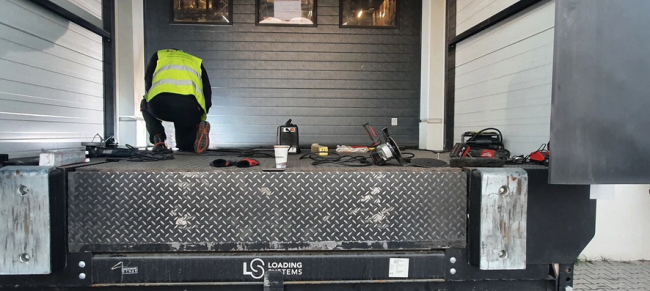The High Court has ruled in favour of buyers who sought rescission and damages for fraudulent misrepresentation in their purchase of a £32.5m million mansion in Notting Hill. Partner Daniel Broughton examines the decision in Patarkatsishvili and another v Woodward-Fisher [2025] EWHC 265 (Ch), which underscores the vital importance of giving honest disclosures to enquiries in property transactions.
Background
Iya Patarkatsishvili and her husband, Dr Yevhen Hunyak, purchased Horbury Villa, a Victorian mansion in Notting Hill, from developer Mr William Woodward-Fisher for £32.5m in May 2019.
Shortly after moving in, they discovered a severe infestation of clothes moths that had not been apparent during pre-contract inspections. Investigations revealed that the infestation originated from woollen insulation installed during renovations between 2012 and 2013.
Pre-contract enquiries and misrepresentations
Before the sale, Mr Woodward-Fisher responded to standard pre-contract enquiries by stating that he was unaware of any vermin infestations or defects not apparent upon inspection. However, evidence presented during the trial showed that he had received reports from a pest control company in 2018, identifying a high-level moth infestation and recommending the removal of the woollen insulation. Despite this, he did not disclose these reports to the buyers.
The legal issues
The court examined whether Mr Woodward-Fisher’s responses to three specific pre-contract enquiries constituted misrepresentations. These enquiries related to:
- Awareness of any vermin infestations.
- The existence of reports concerning the property’s fabric.
- Knowledge of any defects not apparent on inspection.
Mr Woodward-Fisher denied any such issues, stating he was unaware of infestations or defects and that no relevant reports existed.
Court’s findings and decision
The court found these statements to be false. Mr Justice Fancourt concluded that the defendant “did not honestly believe his replies to two of the three enquiries” and was “reckless about the truth of the third reply”. This was because he knew there was or may have been a serious infestation of moths requiring the removal of all the natural insulation in the house.
An important aspect of the case was the classification of moths as vermin. The court determined that “an infestation of moths is an infestation of vermin” within the context of the enquiries. This interpretation was crucial in establishing that the defendant’s responses were untrue.
The court concluded that the claimants were entitled to rescind the contract and receive repayment of the purchase price, less an allowance for their use of the property. Additionally, they were awarded substantial damages, including costs incurred in attempting to eradicate the infestation.
Implications for sellers
This case is a stark reminder that sellers must provide honest and complete answers to pre-contract enquiries. Failure to disclose known issues, especially those not apparent from an inspection, can lead to claims of fraudulent misrepresentation and/or a significant payment of damages.
The decision reinforces the principle that “buyer beware” (ie “caveat emptor”) does not absolve sellers from the duty to disclose known defects.
Interestingly, the judge concluded his judgment by saying: “The suggestion that a conclusion of misrepresentation in this extreme case will cause a general conveyancing problem is simply wrong.” This comment highlights the extreme facts of this case in order to address concerns that the decision would complicate the conveyancing process.
If you have any conveyancing queries, please contact Daniel Broughton at [email protected].
For more information visit our website: https://www.portner.co.uk/
The High Court has ruled in favour of buyers who sought rescission and damages for fraudulent misrepresentation in their purchase of a £32.5m million mansion in Notting Hill. Partner Daniel Broughton examines the decision in Patarkatsishvili and another v Woodward-Fisher [2025] EWHC 265 (Ch), which underscores the vital importance of giving honest disclosures to enquiries in property transactions.
Background
Iya Patarkatsishvili and her husband, Dr Yevhen Hunyak, purchased Horbury Villa, a Victorian mansion in Notting Hill, from developer Mr William Woodward-Fisher for £32.5m in May 2019.
Shortly after moving in, they discovered a severe infestation of clothes moths that had not been apparent during pre-contract inspections. Investigations revealed that the infestation originated from woollen insulation installed during renovations between 2012 and 2013.
Pre-contract enquiries and misrepresentations
Before the sale, Mr Woodward-Fisher responded to standard pre-contract enquiries by stating that he was unaware of any vermin infestations or defects not apparent upon inspection. However, evidence presented during the trial showed that he had received reports from a pest control company in 2018, identifying a high-level moth infestation and recommending the removal of the woollen insulation. Despite this, he did not disclose these reports to the buyers.
The legal issues
The court examined whether Mr Woodward-Fisher’s responses to three specific pre-contract enquiries constituted misrepresentations. These enquiries related to:
- Awareness of any vermin infestations.
- The existence of reports concerning the property’s fabric.
- Knowledge of any defects not apparent on inspection.
Mr Woodward-Fisher denied any such issues, stating he was unaware of infestations or defects and that no relevant reports existed.
Court’s findings and decision
The court found these statements to be false. Mr Justice Fancourt concluded that the defendant “did not honestly believe his replies to two of the three enquiries” and was “reckless about the truth of the third reply”. This was because he knew there was or may have been a serious infestation of moths requiring the removal of all the natural insulation in the house.
An important aspect of the case was the classification of moths as vermin. The court determined that “an infestation of moths is an infestation of vermin” within the context of the enquiries. This interpretation was crucial in establishing that the defendant’s responses were untrue.
The court concluded that the claimants were entitled to rescind the contract and receive repayment of the purchase price, less an allowance for their use of the property. Additionally, they were awarded substantial damages, including costs incurred in attempting to eradicate the infestation.
Implications for sellers
This case is a stark reminder that sellers must provide honest and complete answers to pre-contract enquiries. Failure to disclose known issues, especially those not apparent from an inspection, can lead to claims of fraudulent misrepresentation and/or a significant payment of damages.
The decision reinforces the principle that “buyer beware” (ie “caveat emptor”) does not absolve sellers from the duty to disclose known defects.
Interestingly, the judge concluded his judgment by saying: “The suggestion that a conclusion of misrepresentation in this extreme case will cause a general conveyancing problem is simply wrong.” This comment highlights the extreme facts of this case in order to address concerns that the decision would complicate the conveyancing process.
If you have any conveyancing queries, please contact Daniel Broughton at [email protected].
For more information visit our website: https://www.portner.co.uk/

















